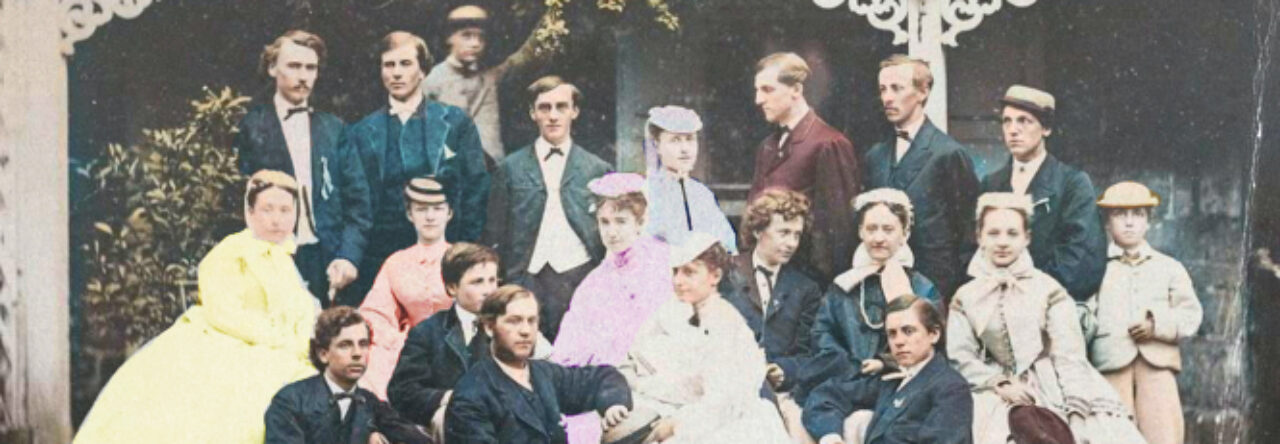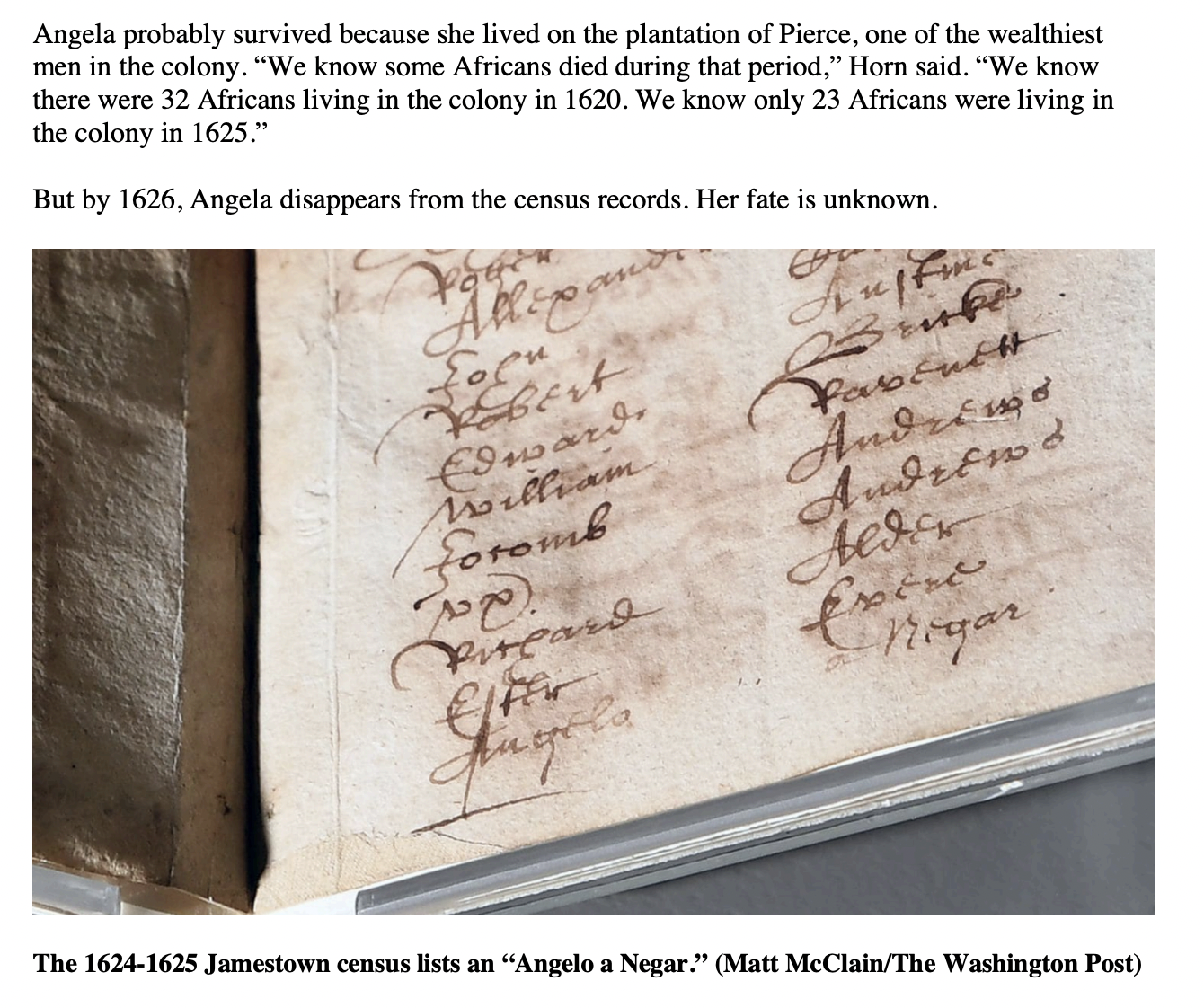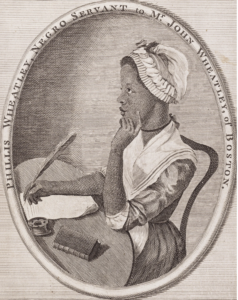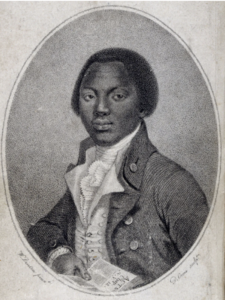How should we teach the story of Angela and other enslaved Africans?
See DeNeen Brown, “[Angela’s Story]: A Symbol of Slavery –And Survival,” Washington Post, April 29, 2019 [PDF]
Teaching the African Slave Trade
Phillis Wheatley
Phillis Wheatley (1753-1784) was born in Africa, kidnapped and enslaved at the age of seven, and then forced into domestic service for the Boston family of John and Susanna Wheatley. During the 1760s and 1770s, Phillis Wheatley was enslaved in Boston but learned how to read and write, and proved to be a true prodigy as a poet. She began publishing poems in local newspapers in the late 1760s and became something of a celebrity by the early 1770s. Her first published collection of 28 poems, Poems on Various Subjects, Religious and Moral (1773) appeared in London and included “On Being Brought From Africa to America,” which is presented below and which many now regard as her most famous literary effort.
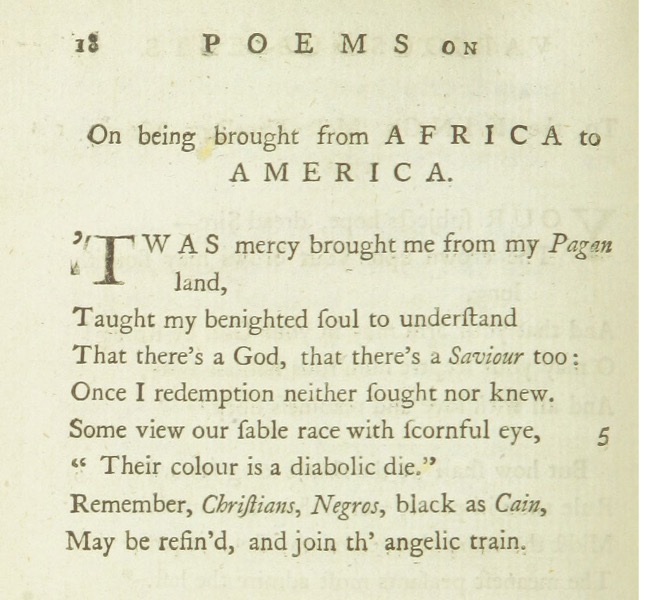 Wheatley’s poem, 1773 (Internet Archive)
Wheatley’s poem, 1773 (Internet Archive)
Equiano
“…The first object which saluted my eyes when I arrived on the coast was the sea, and a slave-ship, which was then riding at anchor, and waiting for its cargo. These filled me with astonishment, which was soon converted into terror, which I am yet at a loss to describe, nor the then feelings of my mind. When I was carried on board I was immediately handled, and tossed up, to see if I were sound, by some of the crew; and I was now persuaded that I was got into a world of bad spirits, and that they were going to kill me. Their complexions too differing so much from ours, their long hair, and the language they spoke, which was very different from any I had ever heard, united to confirm me in this belief. Indeed, such were the horrors of my views and fears at the moment, that, if ten thousand worlds had been my own, I would have freely parted with them all to have exchanged my condition with that of the meanest slave in my own country. When I looked round the ship too, and saw a large furnace of copper boiling, and a multitude of black people of every description chained together, every one of their countenances expressing dejection and sorrow, I no longer doubted of my fate, and, quite overpowered with horror and anguish, I fell motionless on the deck and fainted. When I recovered a little, I found some black people about me, who I believed were some of those who brought me on board, and had been receiving their pay; they talked to me in order to cheer me, but all in vain. I asked them if we were not to be eaten by those white men with horrible looks, red faces, and long hair?”
CITATION: Olaudah Equiano, The Interesting Narrative of the Life of Olaudah Equiano, or Gustavus Vassa, The African. Written by Himself, Chapter 2 (1789), FULL TEXT via Project Gutenberg
Equiano’s description of African society is the most important written by an African in the days before European empires severely disrupted African society. And Equiano’s description of the middle passage is a reminder of the sufferings of the ancestors of most African American and Black British people alive today. – Brycchan Carey
Clip from History channel’s remaking of “Roots” (2016)
- FEATURED DATABASE: Slavevoyages.org
- Brycchan Carey, Where Was Olaudah Equiano Born (And Why Does It Matter?) (2020)
- Brycchan Carey, The Equiano Portraits (2019)
1619 Project
Our founding ideals of liberty and equality were false when they were written. Black Americans fought to make them true. Without this struggle, America would have no democracy at all. –Nikole Hannah-Jones
2020 MSNBC segment on the 1619 Project
- Nikole Hannah-Jones, Introductory essay, 1619 Project, NY Times Magazine (2019)
- Historians’ Letter to the Editor and Response, New York Times, Dec. 2019
- Pulitzer Center, 1619 Project Education Materials Collection
- James Oakes, What the 1619 Project Got Wrong, Catalyst (Fall 2021)
